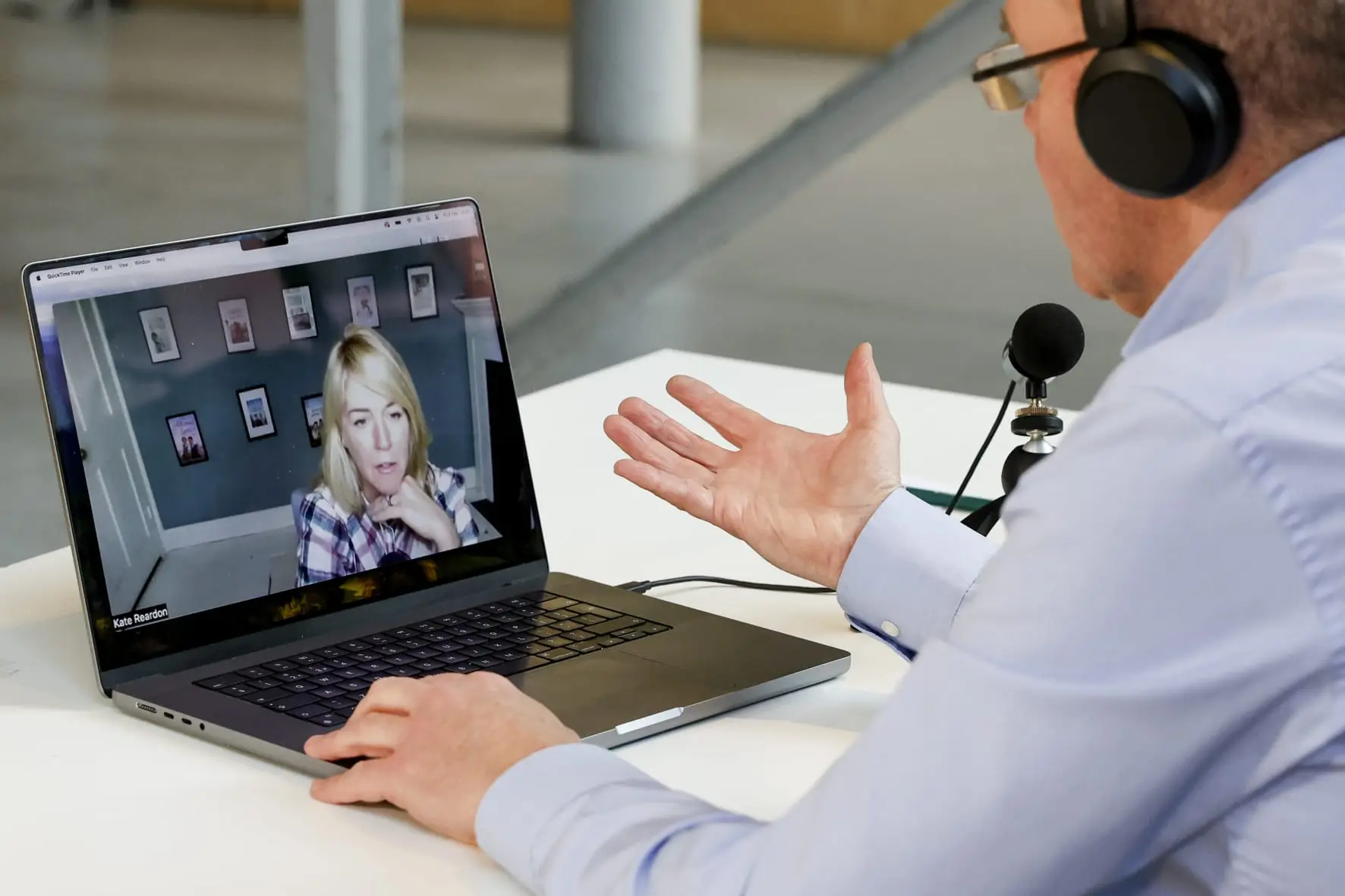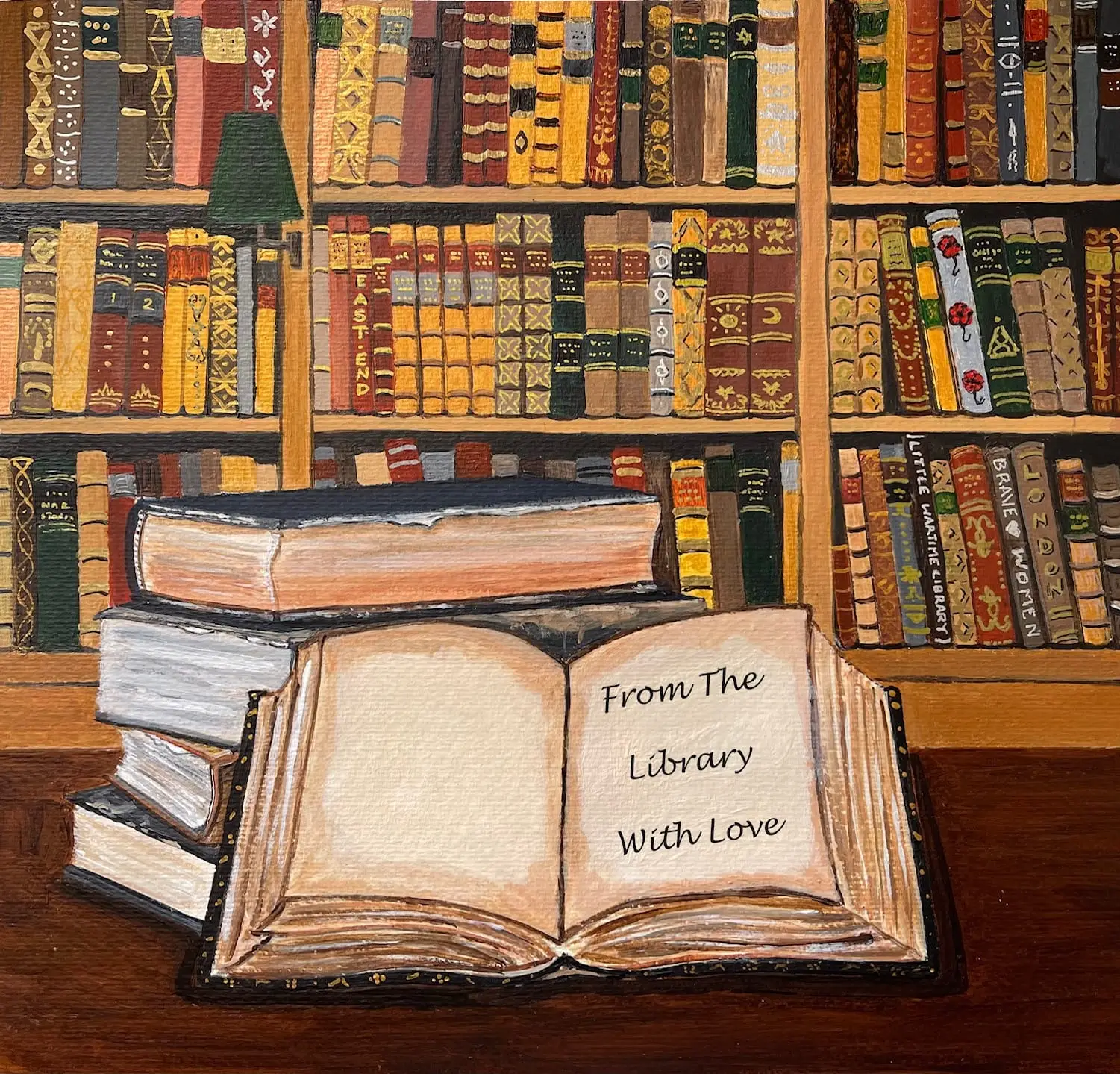An interview with Sunday Times Best Selling Author Kate Thompson…
Podcasting has become ‘all the rage’. Covering every possible topic, they are an excellent tool for exchanging ideas, networking and and an ideal way to engage with your audience or customers on a personal level.
Starting a podcast series may seem daunting but for the past few months I have been working with Sunday Times best selling author Kate Thompson (The Little War Time Library, The Wartime Book Club) on her podcasts series ‘From The Library With Love’.
Kate was starting from scratch, a complete novice and she contacted me asking to edit her interviews and provide audio files for loading on to the various podcast platforms. It was a steep learning curve for us both and below I talk to Kate about all she has learnt from the experience and to impart any wisdom and advice to anyone who is thinking of starting their own podcast series but are yet to take the plunge.
I begin by asking Kate why she decided to start a podcast series…
“I was given a piece of advice recently by a female writer far wiser than me. We all need a full portfolio. By that she meant, have lots of strings to your bow, diversify from books, use as many mediums as possible to get your stories out there.
With that in mind, I decided, in the spirit of nothing ventured, to set up a podcast. I’m laughing to myself as I write that line, because back then I was so naïve, how hard can it be? I thought to myself. It’s only talking. Nearly a year on, it’s the backdrop of my daily life. Checking downloads is utterly addictive, as is dreaming up new episodes.
The seed of an idea had been rattling around inside my mind for many years. Ever since I wrote my debut novel, Secrets of the Singer Girls for Pan Macmillan in 2016, I have been pounding the streets of London in search of social history.
It started out as research, but if I’m honest, it’s now become something else. I love sitting on the sofa of a 90 something woman, cup of tea in hand, listening rapt to the unfiltered gush of history. I love interviewing our wartime generation. The more I listen, the more I hear. It can start off about the day-to-day stuff, tea dresses and Spam, Victory waves and vermillion, but then it graduates to the guts of wartime life, the pain and the loss, the hopes and the dreams. When I start a conversation without knowing where it will lead, the past is no longer dusty and sealed off behind a door, but bright, fantastic and vividly real.
The urgency to document the stories of our wartime generation grows daily. In five years’ time there will be no more lively reminiscing. ‘Primary sources’ as I believe proper historians call it, will no longer be around to tell us their tales.
History books will only tell you so much. Oral history is a different beast. It’s in these conversations, in the spaces between the reflection, the best china cups laid out on saucers, the framed photos on the wall, the body language and gestures, that you really get to explore and crucially understand history.
It’s the 94-year-old Blitz survivor you interviewed who insists on sitting near the door because, ‘it’s funny ain’t it, but all these years on I still have to know where the exit is.’ (You later discovered she was buried alive in an Anderson shelter for three days.) Or the Auschwitz survivor who absolutely insists you must eat the shortbread she has laid out for you. “My grandmother has a few issues around food”, explained her grandson after the interview. Or the 88-year-old gentleman who collects half-used miniature pots of marmalade from hotels because he can’t stand to see waste. Turns out he nearly starved to death during the Occupation of Jersey, in the six month period known as the siege.
These tiny details are the sinews and connective tissue that bring alive the extraordinary stories of ordinary people.
I began recording these conversations and by last spring realised I had amassed a large amount of material. It occurred to me as I listened, how wonderful it would be to share these unique voices with other people, to have a central place, a library of interviews if you will, where I could document these stories. And that’s where the idea for a podcast came from.”

“Coming up with ideas for episodes is the easy part for me, the technical side less so. I knew I needed to use a hosting platform and after a lot of research chose Buzzsprout as they seemed to be the one most podcastors recommended. Ben at Mediacrews does the hard part, editing each episode, smoothing over the cracks, the coughs, the barking dogs and on one occasion, the bleeping smoke alarm and blends it into something far more harmonious and easy on the ear. He then sends me the finished episode and it’s very easy to upload it to Buzzsprout, You can schedule in advance, they will then release to multiple streaming platforms and allow you to share and promote, as well as suggest possible ads to stream on your site. I went for a basic, reasonably priced package but more expensive ones have more sophisticated add ons, but for a new starter the basic platform is perfect. I record either over zoom, using a plug in mic, or on my phone, using a Shure recording app. You really don’t need to spend a lot of money to get reasonable technology for podcasting, That’s the beauty of it;”
“Yes, I did a lot of research and realised that people have to get instantly what it is they’re committing their time to listening to, but also the ‘feel’ of it. I wanted to wrap people in the warmth and escapism of reading. I am lucky enough to have a painter friend who came up with this illustration for me. I wanted to summon up the warmth, magic and possibility that a library contains. I love it. On reflection, as I scroll through Apple Podcasts, I can see now the name doesn’t stand out enough. Most other podcasts are far simpler with bolder, easier to read names, but I hope the image is intriguing enough to make people pause. Still, lessons learned, so if you are considering a podcast, learn from my mistakes.”

One year on I’m on series three and I really need to set some time aside to work out more monetisation for the site, perhaps in the form of sponsorship, For now though, I’m enjoying making it, finding a new way to be creative and expressing myself on my terms.
Good luck if you’re considering starting a podcast. You won’t regret it!